Life
Sign up for our newsletter
We summarize the week's scientific breakthroughs every Thursday.
-
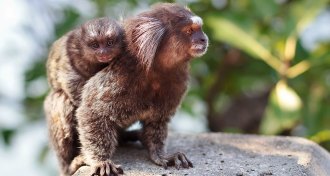 Psychology
PsychologyBaby marmosets imitate parents’ sounds
Vocal learning may work similarly in marmoset monkeys, songbirds and humans.
By Bruce Bower -
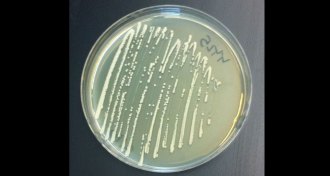 Chemistry
ChemistryPathway pieced together to make opiates in yeast
Scientists have engineered yeast to make sugar into thebaine, a precursor to opiates such as morphine.
-
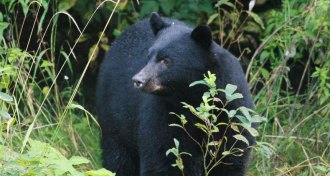 Animals
AnimalsA UFO would stress out a bear
Scientists need to know how animals, such as bears, react to the drones being used increasingly to study them.
-
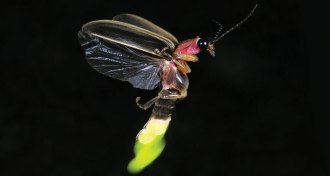 Animals
AnimalsLight pollution may disrupt firefly sex
Females of a common big dipper firefly weren’t as flashy when forced to flirt in LED light pollution.
By Susan Milius -
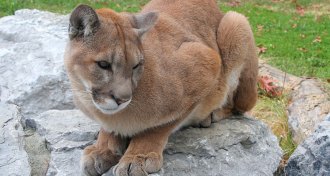 Animals
AnimalsCougars may provide a net benefit to humans
Cougars have disappeared from the eastern United States. If they returned, they’d kill deer, preventing many car crashes, scientists find.
-
 Neuroscience
NeuroscienceShifting views of brain cells, and other fresh perspectives
The details emerging from the latest work on glial cells are sure to yield more insights as scientists continue their struggle to understand the mind.
By Eva Emerson -
 Astronomy
AstronomyLucy’s new neighbor, downloading New Horizon’s data and more reader feedback
Readers discuss why Pluto's data will take so long to get to Earth, the role the cerebellum plays in creative thinking and more.
-
 Health & Medicine
Health & MedicineFootball games come with more head hits than practices do
As football intensifies from practice to games, the number of impacts increases, a new study finds.
-
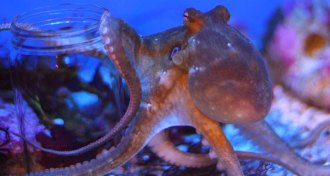 Genetics
GeneticsHow an octopus’s cleverness may have evolved
Scientists have sequenced the octopus genome, revealing molecular similarities to mammals.
-
 Science & Society
Science & SocietyMonster fish, forensics and space exploration on display
Exhibits and opera infuse science into their experience.
-
 Neuroscience
NeuroscienceHints of how the brain “sees” dreams emerge
Nerve cells that make sense of visual input keep chugging away during REM sleep, suggesting that these cells may help a sleeper “see” dreams.
-
 Neuroscience
NeuroscienceHints of how the brain “sees” dreams emerge
Nerve cells that make sense of visual input keep chugging away during REM sleep, suggesting that these cells may help a sleeper “see” dreams.